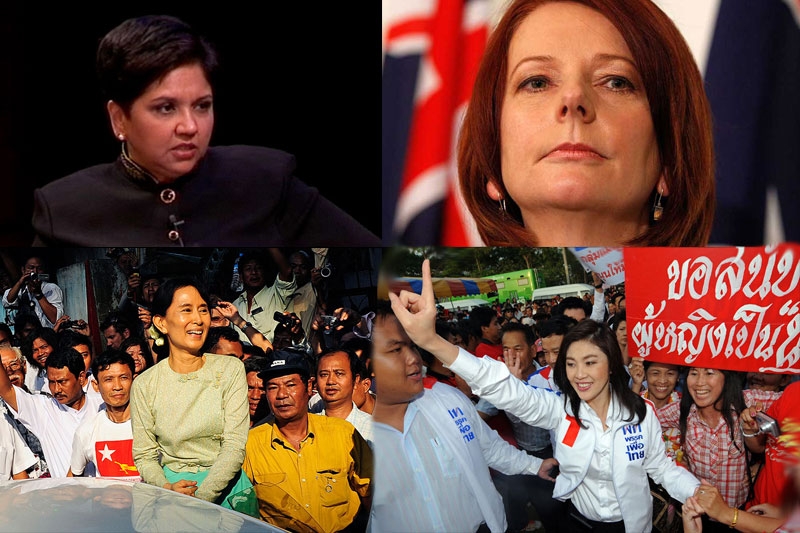Developing Next Generation Women Leaders Across the Asia Pacific Region

SAN FRANCISCO, Sept. 13, 2011 — Girls and women are a fallow and underdeveloped resource in the Asia Pacific region. An enormous amount of work needs to be done to bring the numbers of women in leadership positions in business, government, and civil society to a level that matches the true gender ratio. The work of numerous governmental, intra-governmental, and non-governmental organizations has been commendable. Yet, the situation remains that even in the highest represented member economy, women occupy only 15.7% of corporate board seats, top government positions are woefully underrepresented, and girls’ literacy rates and education opportunities lag behind those of their male counterparts. From the most basic levels pertaining to girls’ education and security, to the level of small business entrepreneurship, and to the level of top governmental and corporate leadership positions, women remain undervalued and their skills or potential underutilized and underdeveloped. Consequently, the Asia Pacific region is not optimizing one of its fundamental human resources for economic growth: potential women leaders.
The Asia Society Next Generation Women’s Leadership Advisory Committee proposes 10 urgent action items that can boost APEC’s efforts to develop a larger and stronger presence of women leaders in the Asia Pacific in order close the gender gap and maximize the contribution of women to the economic development of the region. Our recommendations are posed at two levels: to address the key challenges confronting women in the workplace, and to expand women’s opportunities for development before they enter the workplace. The recommendations seek to foster women’s leadership development for economic growth and offer clear gains for all involved.
To download the white paper, please follow the link above.
Recommendations for APEC Policy Implementation
In order to fully develop and ensure a next generation of female leaders, the Asia Society Next Generation Women’s Leadership Advisory Committee strongly recommends that APEC and its member economies should take the following actions:
From the Classroom:
- APEC should create a Young Women and the Economy Summit in order to provide leadership skills, resources, role models, and encouragement to girls and young women.
- APEC should facilitate, and member economies should commit to, a Girls-in-School Promise, ensuring a dedication to high quality education, literacy, and enrollment rates for girls.
- APEC should start an APEC Industry Scholar program in order to provide young women with borderless scholarships funded by the private sector.
- APEC should create an Education Exchange for Women in order to bring together girls’ schools for cooperation in curriculum and resource development.
- APEC member economies should organize a Sports for Success program to enact on the local level in order to teach girls confidence, competitive drive, and leadership skills through organized competitive sporting events.
To the Boardroom:
- APEC should create an Annex on the Workplace in order to track women’s work force opportunities and representation in APEC member states.
- APEC should conduct a Percentage Study, carried out by an appointed task force, in order to study the feasibility of affirmative action for women on commercial boards and senior government platforms.
- APEC member economies should organize a Women-Friendly Credits policy framework in order to assess, incentivize, and penalize corporations based on the benefits and resources provided for female employees.
- APEC should start a Let Business Lead policy to incentivize the private sector to publicize positive images of women leaders.
- APEC should establish an Upward Resource Center in an APEC member economy in order to develop programs enabling working women to continue acquiring skills for success and leadership.
The Asia Society Next Generation Women’s Leadership Advisory Committee
Lead Author:
Mei Pin Phua, Writer; Asia 21 Fellow
Advisory Committee:
Jumaatun Azmi, Founder and Managing Director, KasehDia; Asia 21 Fellow
Mitsuru Claire Chino, Corporate Counsel, Itochu Corporation; Asia 21 Fellow
Alexandra Harney, Author, Blakemore Freeman Fellow, Tsinghua University; Asia 21 Fellow
Research Associates:
Michelle Lee, Intern, Asia Society
Sara Segal-Williams, Intern, Asia Society
Acknowledgements
The completion of this white paper would not have been possible without the contribution of Asia Society’s Asia 21 Fellow Mei Pin Phua. Within a very tight schedule, Mei Pin worked tirelessly across international time zones, to draft this concise yet comprehensive white paper and synthesize excellent suggestions and input from the members of the Advisory Committee, also comprised of Asia 21 Fellows. The Asia Society also owes a special thanks to Michelle Lee and Sara Segal-Williams, two amazing research associates who complemented Mei Pin’s gusto and painstakingly carried out research and multiple revisions of the paper. We could not have asked for a better team to work on the paper.
